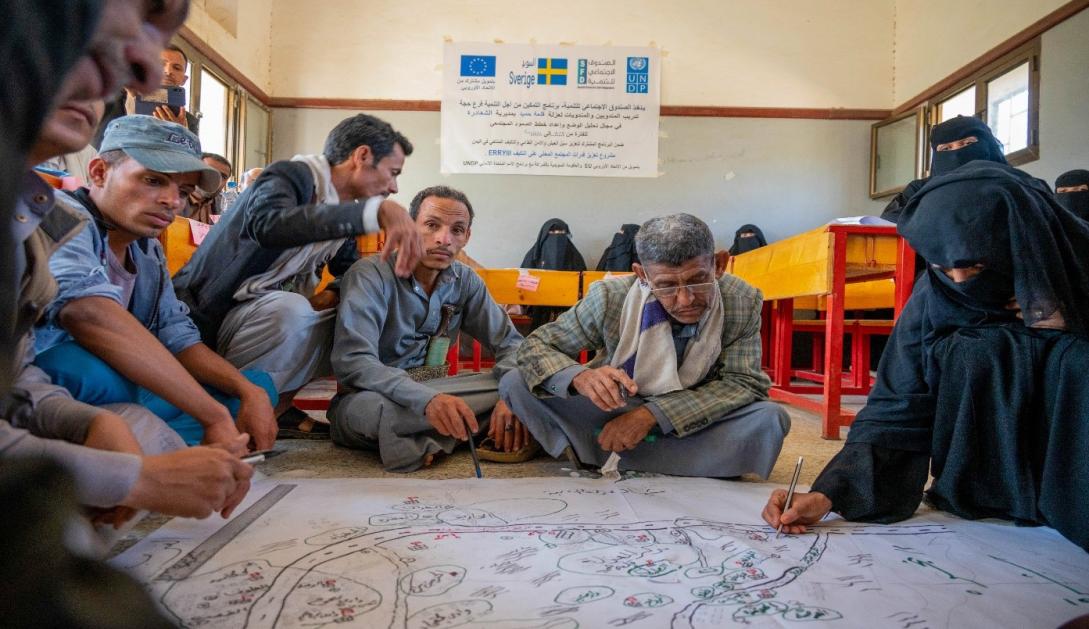Building resilience in Yemen: A collaborative approach to sustainable development

A Joint Approach to Strengthening Local Governance
SIERY and ERRY are complementary programs that have significantly contributed to restoring the functionality of Yemen’s local governance system. SIERY focuses on formal governance structures at the district level, while ERRY operates at the sub-district level, emphasizing informal governance structures such as community committees. This dual approach has created a seamless integration of efforts, ensuring that both formal and informal governance structures are strengthened in cycle.
Strengthening Local Governance and Community Engagement
The collaboration between SIERY and ERRY has strengthened governance structures at both institutional and community levels. SIERY supports the capacity of local authorities to plan and implement essential services, while ERRY fosters community participation in decision-making and governance.
Key achievements include SIERY’s support to enhance the capacity of local authorities to plan and deliver essential services in health, education, sanitation, and energy, leading to the implementation of over 170 priority projects, and indirectly benefiting six million people. Simultaneously, ERRY has empowered local population by establishing 50 Sub-District Committees (SDCs) and 326 Village Cooperative Councils (VCCs), contributing to inclusive governance and resilience projects that have benefited nearly 200,000 people.
Together, these programs have strengthened participatory governance and empowered local institutions to collaborate with communities, ensuring more responsive service delivery. The integration of community-level priorities into district-level planning has enhanced transparency and social accountability, paving the way for sustainable economic recovery and social stability across Yemen.
Economic Empowerment and Livelihoods
Both SIERY and ERRY drive economic resilience by supporting local businesses, value chains, job creation, and market access. SIERY collaborates with local authorities and the private sector to train 3,000 smallholders and SMEs, provide financial support to 2,000 enterprises, to directly benefit 35,000 individual. In addition to upgrading market infrastructure, boosting trade for 560 businesses and attracting 7.2 million buyers annually.
Meanwhile, ERRY focuses on rural employment by supporting 4,800 short-term jobs, 3,000 microbusinesses, and offering vocational training to 1,528 youth and women, enhancing employability and economic self-reliance.
Both programs supported solar-powered energy solutions for healthcare and administrative facilities, reducing reliance on fuel-powered electricity and ensuring sustainable public service delivery. Under SIERY solar energy systems were installed in 102 educational institutions as a result of local authorities’ priorities under the annual district recovery plans and under ERRY 150 public service facilities solarized,500 individuals trained in solar energy entrepreneurship, leading to new job opportunities in the renewable energy sector and 308 apprentices specializing in solar energy installation and maintenance. And one solar-powered water desalination plant established, providing clean drinking water to vulnerable communities.
Both programs ensure active women participation, with 54% of participants being women, who contribute significantly to Yemen’s economic recovery, particularly in food production, livestock retail, and textile manufacturing. This focus on gender inclusivity has not only empowered women but also strengthened the economic resilience system and the overall economic fabric of Yemeni communities.





